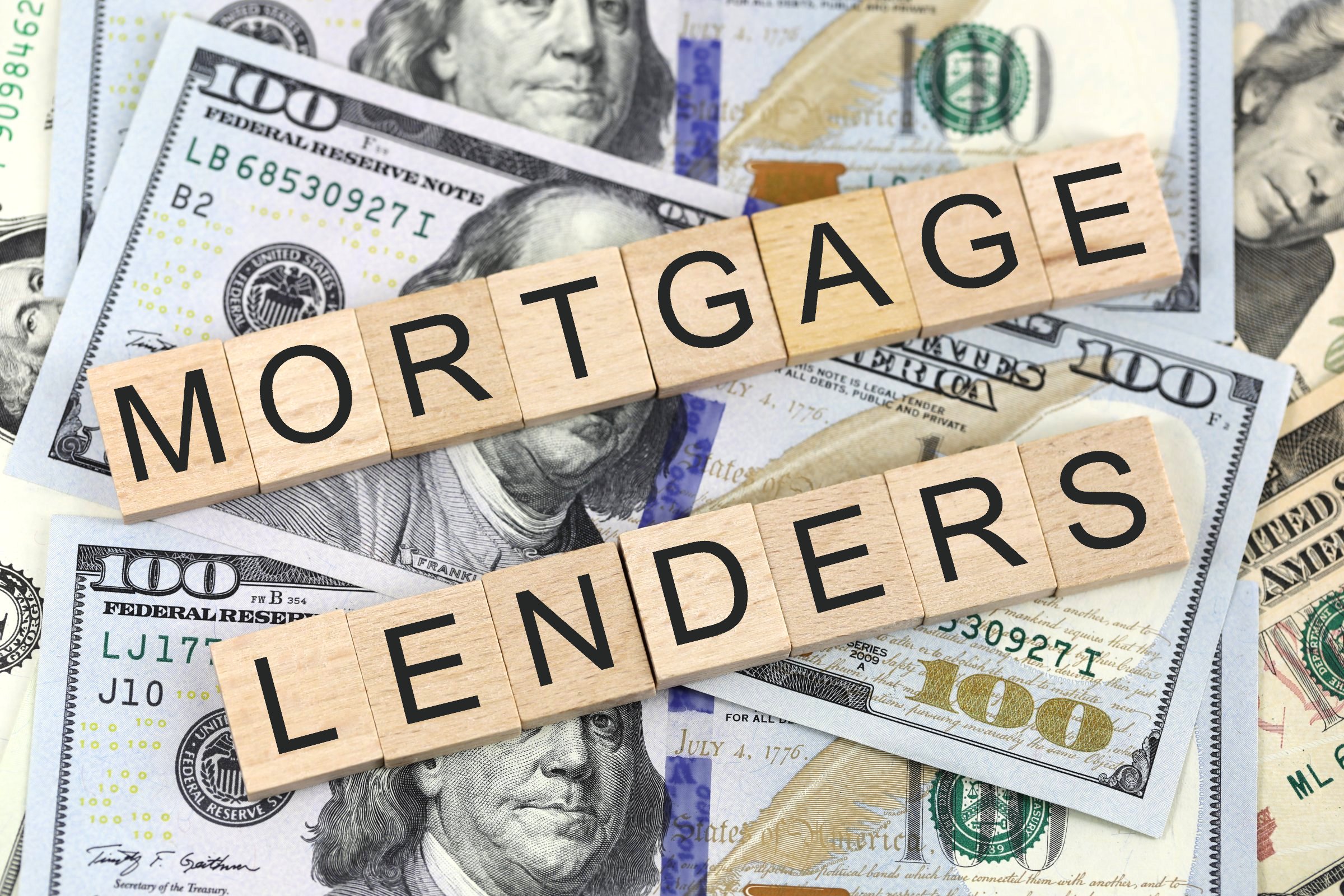Everything About Mortgage Lending: Secret Insights for Homebuyers and Investors
Mortgage lending is a complex landscape, supplying numerous financing types customized to diverse consumer requirements. Understanding the subtleties of conventional, FHA, VA, and USDA car loans can significantly influence homebuyers and capitalists alike. Additionally, credit ratings play a pivotal duty in securing positive rate of interest. As the home mortgage application process unfolds, numerous vital aspects enter into play, influencing both approval and terms. What are the crucial steps and methods to browse this intricate process successfully?
Recognizing Various Sorts Of Mortgage Loans
Comprehending the numerous kinds of mortgage loans is important for potential property buyers, as each choice satisfies different monetary circumstances and needs. Traditional finances, typically offered by exclusive lending institutions, call for a greater credit rating rating and often involve a down payment of a minimum of 20%. Alternatively, FHA loans are government-backed and made for new purchasers, permitting lower credit history and smaller sized deposits. VA fundings, offered to professionals and active armed forces members, supply desirable terms and no deposit requirement. In addition, USDA financings support rural buyers with low to modest earnings, offering absolutely no deposit options. Fixed-rate home mortgages preserve regular regular monthly payments over the lending term, while variable-rate mortgages start with reduced rates that can change. By understanding these differences, homebuyers can make educated decisions tailored to their economic situations and long-term objectives. Selecting the appropriate mortgage type is a substantial action in the home-buying process.
The Importance of Credit History in Home Loan Approval
Credit report play a necessary function in the mortgage authorization process, acting as a vital indicator of a consumer's creditworthiness. A higher credit history rating can lead to extra beneficial interest prices, considerably impacting the overall expense of a home mortgage. Understanding the fundamentals of debt scores and discovering means to boost them can greatly benefit prospective homebuyers.

Credit Report Rating Essentials
A solid debt rating plays a crucial duty in the home mortgage authorization procedure, affecting lending institutions' understandings of a debtor's dependability. Credit history, usually ranging from 300 to 850, show a person's creditworthiness based on their financial background, consisting of payment background, credit rating utilization, length of credit rating, kinds of charge account, and current inquiries. Lenders assess these ratings to evaluate the danger related to offering cash. Generally, a greater credit history indicates reduced risk, causing a smoother approval procedure. Homebuyers and capitalists should routinely examine their credit score records for errors and take actions to improve their scores, such as paying costs in a timely manner and decreasing superior debts. A solid credit scores rating is a vital possession in safeguarding beneficial home mortgage terms.
Influence On Rate Of Interest
Rate of interest prices on mortgages are significantly affected by the consumer's credit report, which works as an essential sign of economic reliability. Lenders assess credit rating to review the threat related to extending a financing. Private Mortgage Lenders Savannah GA. Greater credit history normally cause reduced passion prices, as they recommend that borrowers are most likely to repay their debts. Conversely, lower credit rating scores may lead to greater prices, mirroring the raised danger viewed by loan providers. This relationship underscores the value of maintaining a solid credit history profile for potential consumers. Recognizing exactly how credit score ratings impact rates of interest can encourage property buyers and financiers to make informed choices, possibly saving them substantial quantities over the life of their home loan

Improving Your Credit History
Property buyers crazy about safeguarding beneficial home loan terms should identify the critical duty of debt scores in the authorization process. A greater credit history usually results in reduced rates of interest, which can significantly lower the general cost of a home loan. Lenders analyze credit history to assess a candidate's monetary integrity, affecting their decision to authorize or refute a home mortgage application. To enhance their ratings, potential customers need to focus on timely costs settlements, decreasing superior financial obligations, and staying clear of brand-new credit score inquiries. Frequently assessing credit rating reports for errors can likewise aid keep accuracy. By taking these steps, property buyers can improve their credit reliability, inevitably improving their chances of acquiring a home loan with positive problems.
Secret Aspects Affecting Rates Of Interest
Exactly how do different economic factors form the landscape of home loan rate of interest rates? Several key components play an essential duty in identifying these rates. The Federal Reserve's monetary plan considerably influences rate of interest; when the Fed raises or lowers benchmark prices, home loan rates usually do the same. In enhancement, rising cost of living trends impact the purchasing power of consumers, leading lending institutions to change rates as necessary. Economic growth signs, such as employment prices and GDP development, likewise affect rate of interest; a robust economic situation commonly results in greater rates as a result of raised demand for fundings. Furthermore, the bond market acts as an important standard; when bond returns rise, home mortgage rates often tend to enhance as well. Private borrower aspects, including credit report score and debt-to-income ratio, can influence the certain price offered. Comprehending these characteristics assists buyers and capitalists make informed decisions in the home loan market
The Home Loan Application Process Clarified
What actions are associated with protecting a home mortgage? The mortgage application process begins with the consumer gathering necessary paperwork, such as earnings statements, income tax return, and credit background. Next off, the borrower picks a lender and submits an official application, providing all required details. The lender then performs a credit rating check and examines the debtor's monetary stability.Following this, the loan provider will perform an appraisal of the property to determine its market price. When the residential or commercial property is appraised, the lender reviews the application, consisting of hop over to these guys the borrower's monetary background and the appraisal results, to decide whether to authorize or deny the loan. If authorized, the borrower obtains a loan price quote outlining the terms and prices connected with the mortgage.Finally, the customer testimonials and indications the closing documents, formally securing the home mortgage. Comprehending this procedure is important for potential property owners as they navigate the complexities of home loan loaning.
Tips for First-Time Homebuyers
First-time buyers encounter an unique set of challenges when entering the property market. Comprehending the different kinds of home loans available and properly budgeting for their acquisition are essential steps in the homebuying trip - Private Mortgage Lenders Savannah GA. By outfitting themselves with this knowledge, they can make educated choices that straighten with their financial goals
Understanding Home Loan Kinds
Maneuvering the globe of home loan kinds can be intimidating for those going into the real estate market for the very first time. Comprehending the different choices is important for first-time homebuyers. Fixed-rate mortgages supply predictable month-to-month payments, making budgeting less complex. Conversely, adjustable-rate home loans (ARMs) generally begin with lower prices that can vary with time, which might be attractive but lugs threats. Government-backed lendings, such as FHA and VA finances, offer added assistance for eligible buyers, commonly calling for lower down payments. Furthermore, first-time property buyers may explore conventional car loans that stick to specific requirements. Each home mortgage type has special advantages and downsides, so it is important for newcomers to research thoroughly and analyze their lasting monetary goals before deciding.
Budgeting for Your Purchase
When beginning on the trip of homeownership, efficient budgeting is important for possible purchasers to assure economic stability throughout the process. Newbie buyers must begin by evaluating their earnings and expenditures, guaranteeing they assign funds for a down repayment, closing costs, and relocating costs. Establishing a monthly spending plan that includes home loan repayments, real estate tax, insurance, and maintenance expenses is important. Customers ought to additionally consider potential fluctuations in rates of interest and market problems. Developing a reserve can give a safety internet for unforeseen costs. Furthermore, customers might benefit from seeking advice from financial advisors or utilizing online budgeting devices to get a more clear understanding of their monetary scenario. Careful planning ultimately leads to informed decisions and an effective home acquisition.
Financing Options genuine Estate Investors
What financing alternatives are offered to investor looking to broaden their portfolios? Investors can explore several methods. Standard home mortgages stay a popular option, usually click for more info requiring a larger down settlement and great credit. Conversely, investors may take into consideration hard money fundings, which are temporary financings secured by property, using fast accessibility to funding but at greater rate of interest rates.Another option is private financing, where investors can borrow from good friends or household, typically with more adaptable terms. For those seeking to finance numerous residential or commercial properties, profile finances may be suitable, enabling multiple residential properties to be bundled under one mortgage.Additionally, actual estate crowdfunding platforms have emerged, making it possible for financiers to merge resources with others for residential or commercial property financial investments. Finally, leveraging equity in existing buildings through cash-out refinancing can supply funds for new investments. Each option has its benefits and dangers, calling for careful consideration based upon individual financier objectives.
Often Asked Concerns
What Are the Common Closing Prices Connected With a Home loan?
Closing expenses typically include appraisal charges, title insurance, lawyer fees, and origination charges. These costs normally vary from 2% to 5% of the lending amount, impacting the overall monetary commitment for the purchaser.
The length of time Does It Require To Shut on a Home mortgage?
The period to shut on a home loan normally varies from 30 to 45 days, relying on numerous factors, including lender efficiency, documentation completeness, and market conditions, which can significantly influence the overall timeline.

Can I Refinance My Home Loan Later?
Yes, refinancing a home mortgage later on is possible. Property owners typically pursue re-financing to safeguard lower interest rates, reduce month-to-month settlements, or gain access to home equity. They ought to think about affiliated fees and their economic circumstance prior to continuing.
What Occurs if I Miss a Mortgage Repayment?
If a home mortgage repayment is missed out on, the customer might face late charges, possible damage to their credit history, and possible foreclosure process. Lenders generally use moratorium, however regular missed payments can cause serious his explanation repercussions.
Exist Fines for Repaying My Mortgage Early?
Numerous loan providers enforce early repayment fines for very early mortgage reward, possibly setting you back consumers added fees. Terms vary significantly amongst lenders, so it is important for customers to examine their home loan contracts before making early payments.